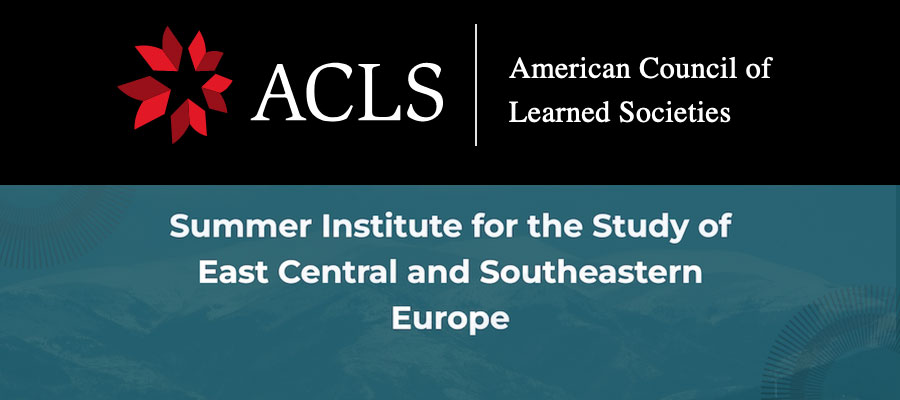Summer Institute for the Study of East Central and Southeastern Europe, Blagoevgrad, Bulgaria, June 1–15, 2023
The Summer Institute for the Study of East Central and Southeastern Europe (SISECSE) is a two-week residential fellowship, that provides scholars of Eastern Europe time and space to dedicate to their own research and writing in a collaborative and interdisciplinary setting. ACLS in partnership with the Centre for Advanced Study Sofia (CAS) will convene leading scholars from Eastern Europe and North America for a two-week residency in Blagoevgrad, Bulgaria from June 1, 2023 to June 15, 2023.
SISECSE will also provide participating scholars with the opportunity to undertake local fieldwork, including archival research, work in museum collections, interviews, site surveys, or other forms of data collection. (Fieldwork is not a requirement for participation in the institute.)
The program will cover travel, accommodation, and per diem expenses for the two-week residential institute. Institute members will be expected to be in residence and to participate in all planned events for the duration of the institute.
In addition to conducting their own research, scholars will also have the opportunity to participate in small group writing workshops, as well as a series of immersive discussions on a broad topic of shared academic interest.
In 2023, discussions will explore “Scholarly Writing in the Digital Age.” Participants will be asked to consider broad questions of accessibility and audience; the democratization of scholarly writing, manifested in the expansion of acceptable writing styles in journals and books; the blur between scholarly writing and creative writing, essays, and memoirs; the implications of digital sources for the way scholars treat their work; the potential of graphics and digital publication; the perceived over-production of articles and books; changing institutional frameworks and cultures of academic writing, and the growing demands for wider impact while retaining intellectual substance; and more.
Eligibility
- Applicants must have a PhD degree conferred by an accredited university by December 1, 2022. (An established scholar who can demonstrate the equivalent of the PhD in publications and professional experience may also qualify.)
- The competition is open to scholars in any field or discipline in the humanities and interpretive social sciences pursuing postdoctoral or advanced research in the region (Albania, Belarus, Bosnia and Herzegovina, Bulgaria, Czechia, Croatia, Hungary, Kosovo, Moldova, Montenegro, North Macedonia, Poland, Romania, Russia, Serbia, Slovakia, Slovenia, Ukraine).
- Applicants must have an affiliation—a long-term regular research or teaching appointment—with a university or college in North America (US, Canada, Mexico) or Central/Eastern Europe (see the list above).
- There are no restrictions as to the citizenship of applicants.
